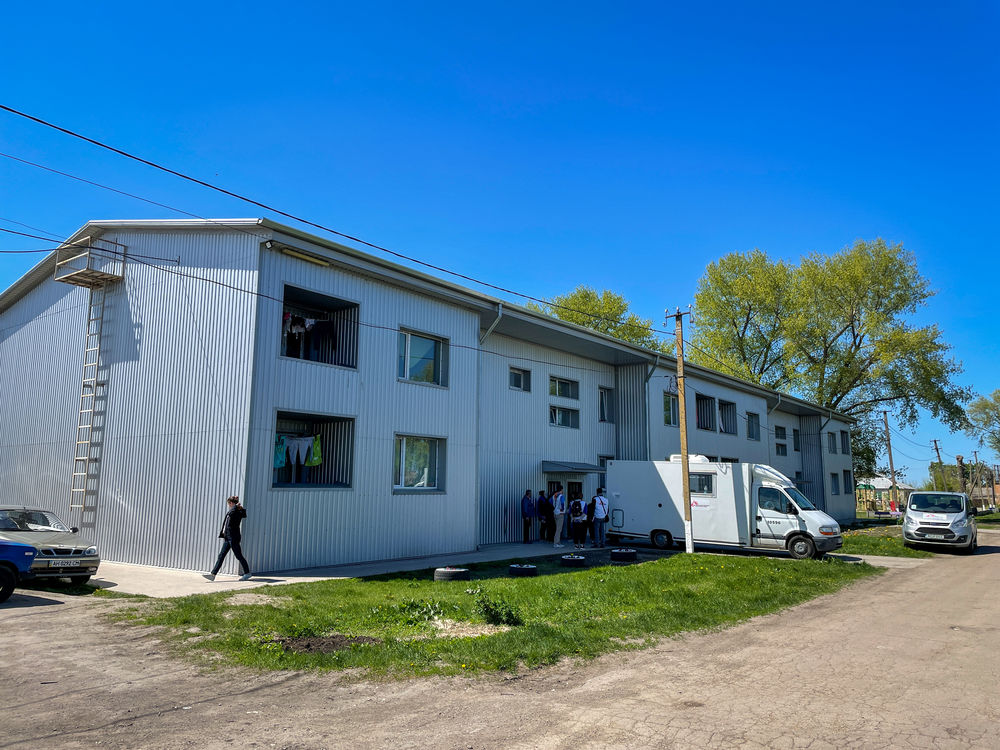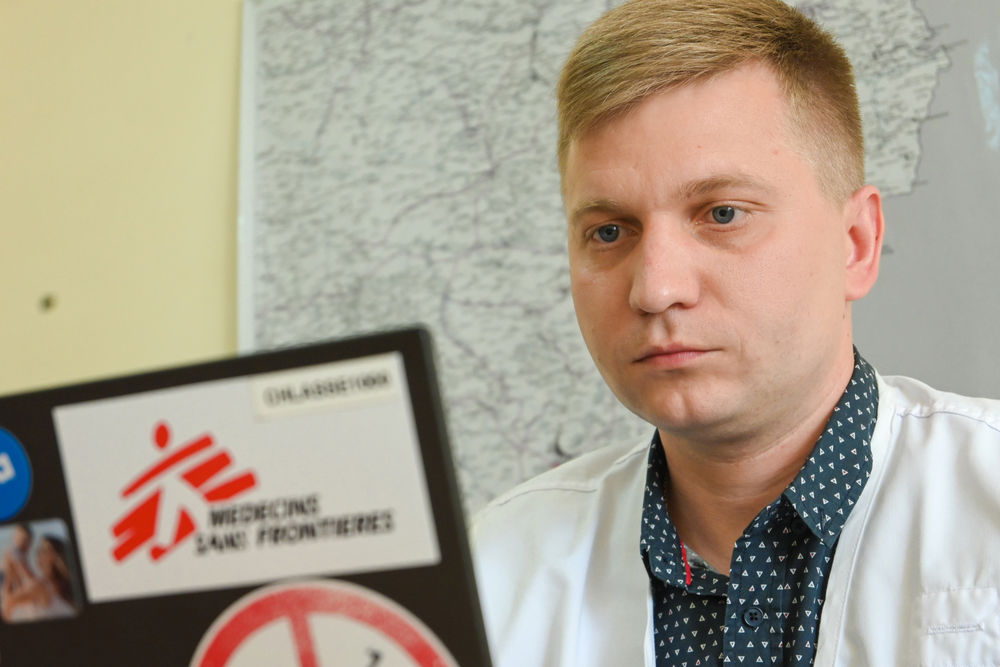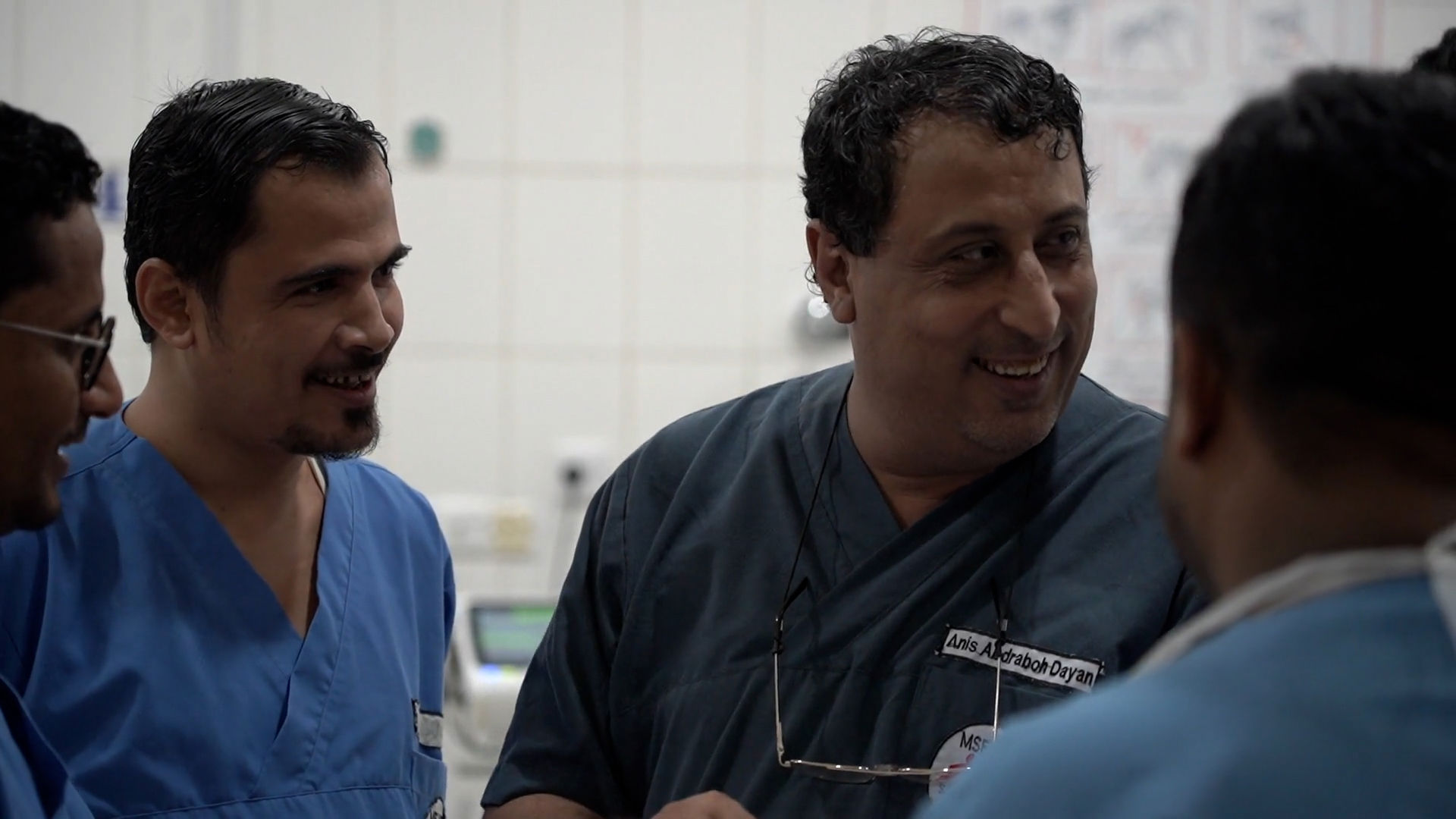Alexander Shcholokov is now the medical advisor of the MSF project in Dnipro, in south-eastern Ukraine. He talks about his experience and his daily life as a Ukrainian doctor.
My name is Alexander Shcholokov, but everyone calls me Sasha. I’m from Donetsk, in eastern Ukraine. I’m a doctor and I’ve worked with Médecins Sans Frontières since 2017.
But on 24 February 2022, given the situation in my country, the decision to stay, and to continue to work for MSF, was immediate and obvious to me. Of course, it was not easy for my wife to accept.
But today, a year later, although the distance and separation are very hard, I know we made the right choice.
24 February 2022
The memories of waking that day are forever etched in my memory. We had been asleep at home in Mariupol when the bombing began. Immediately we knew that we had to leave. But to find refuge where?
We grabbed a few belongings and drove west. 15 hours later, tired from the miles, traffic jams and the anxiety of the unknown, we stopped in Kropyvnytsyi, in central Ukraine. At 5am the next day, we continued towards Lviv. Everywhere was total confusion.
I remember being blocked at a bridge, hearing planes flying over the line of cars. My son was almost two years old, and not really speaking yet, but at that moment he made sounds of incomprehension and fear. I tried to reassure him, but I knew that my family had to leave the country. Later, we learned that on 28 February, a bomb had fallen exactly on our flat, destroying everything...
We made it to the border. I left my family in Hungary and returned to Lviv, where MSF had evacuated its teams.
Dnipro
In parallel with other MSF emergency responses over the country we quickly decided that we would give priority to the immense needs of people in Dnipro.
Dnipro is a town in southeast Ukraine, and a very large number of displaced families were stopping over there as they fled the violence further east. I was offered a job managing the MSF medical teams there and accepted immediately.
I lived in Dnipro back in 2014, at the beginning of the conflict, but when we arrived this time, it was not like I remembered. The streets were empty, like a semi-abandoned city. We began by meeting the local authorities and assessing what was needed, particularly in the health facilities. Within a few days, we started training the hospital teams from the Ministry of Health.
 MSF mobile clinic in Dnipropetrovska oblast. © MSF
MSF mobile clinic in Dnipropetrovska oblast. © MSF
First days in Dnipro
One aim of the training was to give hospital staff the knowledge and skills to manage a massive influx of wounded people, for example after an explosion. Another was so that the team would be ready in case all the patients and activities (the operating theatre, the intensive care and stabilisation units) had to be moved to the basement in the event of bombing.
As well as working with the hospitals, we also began running mobile clinics in Dnipro and Zaporizhia. The clinic teams provide general health consultations in reception centres for new arrivals, as well as in places like shelters.
What we’re doing now
The context was changing constantly in those early days, and it is still changing now. But over the months we have continued to offer medical care. One of our priorities has been chronically ill patients, many of whom have not had access to their medications for weeks, and whose condition may deteriorate at any time.
As well as physical health care, we have psychologists who provide initial psychological support. Ask anyone you meet here, staff or patient, and they will tell you that they have lost a loved one, or loved ones, or have no way of contacting their family or friends.
Our health promoters make connections with local or international organisations who can help in different ways, for example by providing basic items and warm clothes. Recreational activities – physical activities, painting, etc. – are organised to give people a way to externalise what they’ve been through.
Experts by experience
Everyone is trying to find their place in the current situation. Some people have become volunteers to offer support to those around them. Solidarity between everyone is the key word in our daily lives, and it’s powerful. As many of the MSF staff are displaced ourselves, the reality of the people we are helping is also our reality.
We understand displaced people’s needs and know where to find information. Many of us are drawing on experiences from 2014, when the conflict meant thousands of families left eastern Ukraine. This is not the first time we have had to reorganise our personal and professional lives.
Working for MSF also means constantly adapting to changing contexts. And this is also a prerequisite for a doctor: to adapt to each patient, each critical case, and find the best solution as soon as possible. In an emergency situation, the brain adjusts without effort, we are trained for that. And this is an asset as medical staff working in Ukraine today.
Taking care
I haven't seen my son for a year now, although recently I was able to see my wife for a few days in Kyiv. They’re living in the Czech Republic. It’s easier for me to know that they are safe.
For the rest, I try to take care of myself by escaping to the local countryside to get some fresh air, or by watching dramas and reading novels.
I am happy to be able to help and look after people who are in such need. I know that everyone needs a smile right now. That's why, even if I'm not on a good day, the smile never leaves my face. I am there to motivate my team, to fill them with good mood and motivation. So that contagious smile gives us courage and confidence. And I'm sure it will be all right.



